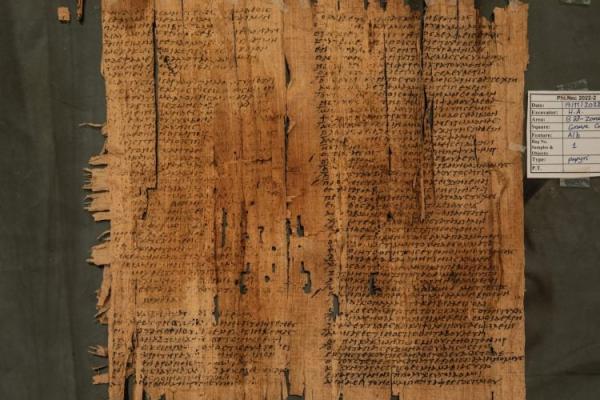Johnston to weigh in on newly published papyrus of Euripides

Sarah Iles Johnston, College of Arts and Sciences Distinguished Professor of Religion, who is an expert on ancient Greek religions and myths, is part of a team of scholars helping to better understand the significance of a newly published papyrus that includes fragments from two lost plays by the ancient Greek playwright Euripides, the Ino and the Polyidus.
The papyrus, formally known as Papyrus Philadelphia Necropolis 23, was discovered in a 3rd century CE pit-grave in the Egyptian Fayoum in November, 2022. John Gibert (an expert on Euripides) and Yvona Trnka-Amrhein (a papyrologist), both of the University of Colorado Department of Classics, published the first scholarly edition of the fragments in Zeitschrift für Papyrologie und Epigraphik in August, 2024.
A closed pre-publication colloquium of experts on Euripides was held at the Center for Hellenic Studies in Washington DC in June 2024 and a public symposium will be held at University of Colorado on September 14, 2024. At the latter, Johnston will discuss what experts know about ancient versions of the two myths and how these might help us better understand the papyrus fragments. (Further information about the papyrus itself and about joining the public symposium virtually here. )
The myth of Ino had several episodes in which current and former wives of King Athamas jealously attempt to kill one another’s children. In the version represented in the new papyrus, Themisto (Athamas’ current wife) plots to murder the children of Ino (his former wife) in their sleep but a disguised Ino manages to switch the children’s positions within their shared bed, causing Themisto to accidentally murder her own children. Polyidus was a diviner and healer, called in by King Minos of Crete to help find Minos’ lost son, Glaucus. When Polyidus discovered Glaucus’ dead body inside a vat of honey, Minos demanded that Polyidus resurrect the boy, a feat that Polyidus considered to be beyond the talents of any mortal—and yet he accomplished it in the end, with the help of some snakes.
